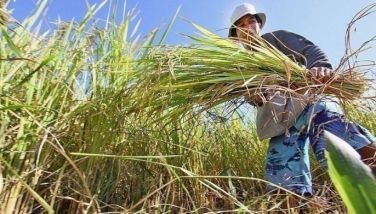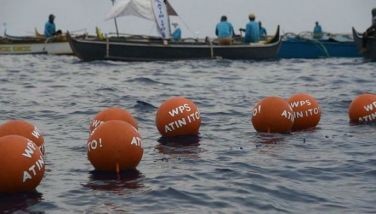Laguna Lake faces decay
MANILA, Philippines - Mirroring national trends of steady resource degradation, the Laguna Lake region, home to the nation’s economic hub, now faces a staggering ecological deficit, with its population demanding natural resources at a rate 30 times faster than what the region can renewably supply, according to a new report on the resource demand and supply of the region
The Restoring Balance in Laguna Lake Region: 2013 Ecological Footprint Report has been published with the support of the Australian government through its aid program, in collaboration with the Philippines Climate Change Commission, Laguna Lake Development Authority, Metro Manila Development Authority and international sustainability think tank Global Footprint Network.
“Understanding the risks caused by demands on the Laguna Lake region’s natural resources and the potential impact on lives and livelihoods of the most vulnerable if left unchecked, is of upmost importance,†said Australian Ambassador to the Philippines, Bill Tweddell.
The widening gap between Laguna Lake region’s supply of and demand on ecological resources has serious national implications, according to the report.
Today, the region contributes more than 60 percent of the Philippines’ gross domestic product. Laguna Lake region’s ecological deficit poses economic risks that can have a ripple effect across the nation.
The Laguna Lake region not only encompasses the nation’s economic capital, Metro Manila, but also the provinces and municipalities most vulnerable to climate change and resource degradation. According to the report’s findings, Metro Manila’s resource demands alone compose 65 percent of Laguna Lake region’s total ecological footprint. Laguna Lake region’s per capita ecological footprint is higher than the national Philippine average.
The region maintains its ecological deficit by drawing down its own resource stocks of fish, timber and other resources; emitting ever more CO2 from fossil-fuel burning into the atmosphere; and consuming imported resources such as food, fiber and forest products. As Laguna Lake region depletes its local resource base, it exposes itself to price volatility and supply disruption due to its dependence on other regions’ and nations’ resources.
The Philippine government is working to address these challenges. Through the leadership of the Climate Change Commission in 2012, the Philippines became the Southeast Asian country to collaborate with Global Footprint Network and adopt the Ecological Footprint. Phase I of the collaboration, documented in A Measure for Resilience: 2012 Report on the Ecological Footprint of the Philippines, laid the foundation for ecological resource accounting in the country as a whole.
Phase II, made possible by the Australian government, includes the publication of the Laguna Lake Region 2013 Ecological Footprint report; a workshop to discuss incorporations resource limits in policymaking; and technical training to build-in-country capacity so that the Philippine government can continue to track, manage and benchmark its biocapacity and ecological footprint at municipal, sub-regional, and national scales.
“The Climate Change Commission strongly recognizes the need for all stakeholders, from national to the grassroots, to collaborate closely in order to internalize the issue of resource limits into the governance culture and in decision-making processes. The commitment towards climate resilience and sustainable development can only be pursued if we continue to incorporate ecological footprint accounting and resource limits into public discourse and policy-making in perpetuity,†asserted Commissioner Naderev Saño of the Climate Change Commission.
The Ecological Footprint approach aims to provide government leaders with the tools they need to better manage the country’s resources. By the conclusion of Phase II, local government officials will have a clear framework to evaluate current practice and planned initiatives in order to maintain ecological, social and ecological balance in the key Laguna Lake and Metro Manila regions.
“As it strives to live within the means of nature, the Philippine government is forging an innovative path for other countries to follow,†said Mathis Wackernagel, president of Global Footprint Network and co-creator of the Ecological Footprint.
- Latest





























